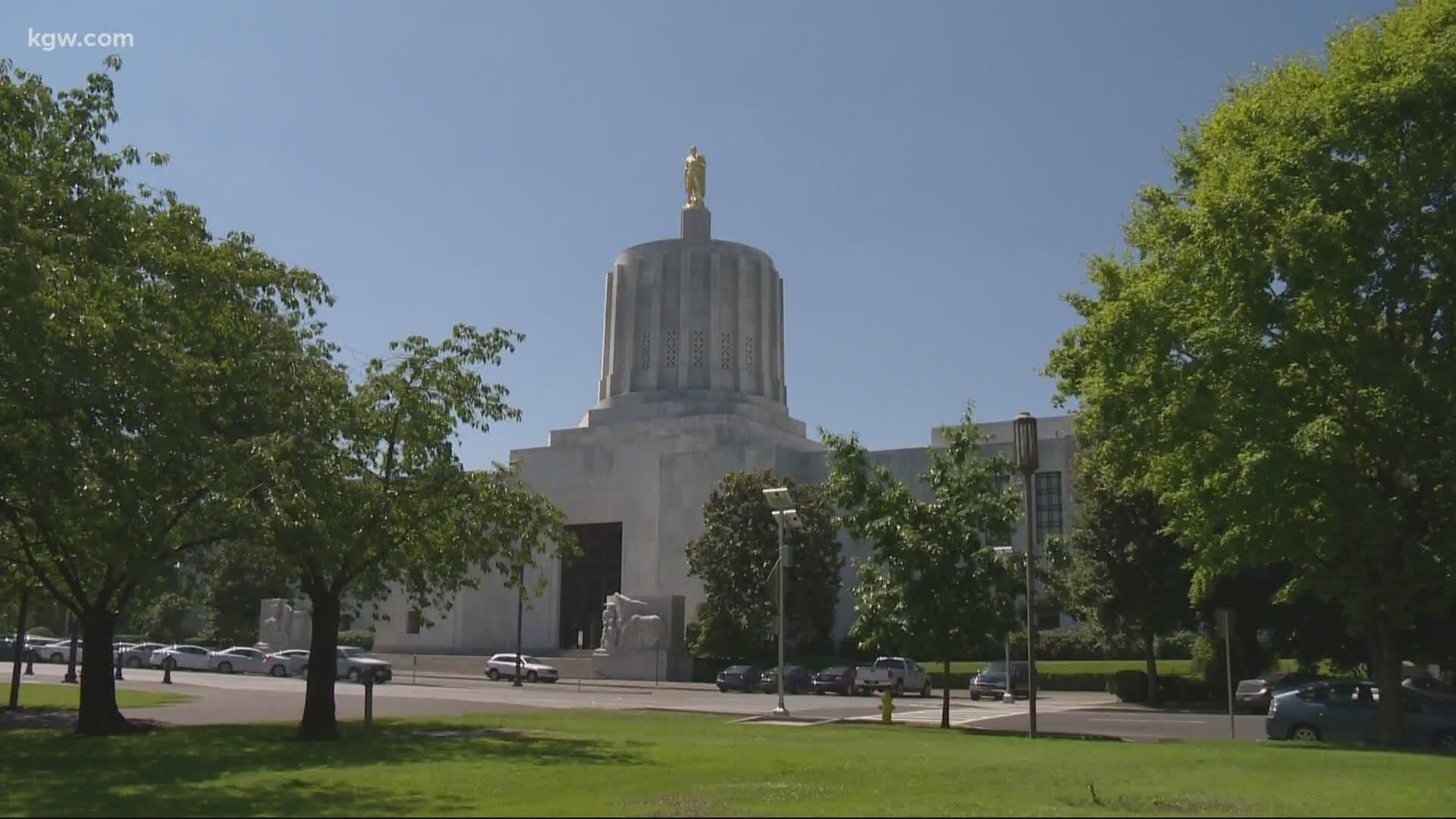PORTLAND, Ore. — A week ahead of a special session called by Oregon Gov. Kate Brown, lawmakers are working behind the scenes to figure out which bills and reforms they’ll attempt to pass tied to police accountability and the COVID-19 pandemic.
Regarding police reform, the governor’s office Wednesday confirmed she wants lawmakers to tackle the agenda proposed by the Oregon Legislative POC (People of Color) Caucus.
That includes prohibiting an arbitrator from lessening disciplinary action against an officer who’s committed misconduct. They also want a bill passed, authorizing and possibly requiring the attorney general to investigate and prosecute cases of death or injury caused by use of force from a law enforcement officer. Finally, the POC Caucus is requesting the House Interim Committee on Judiciary recommend changes to the state’s laws regarding “use of force” or “deadly physical force”. They’re hoping that work will lead to a bill during the 2021 legislative session that better defines those concepts.
State Sen. Lew Frederick (D-Portland) has been proposing reforms like these for years.
“I was hoping this would finally happen, but I never expected it to because people are slow to address things that are that significant,” he said via Zoom Wednesday. “But what we've seen now is a critical mass of information about what's gone on and how people have been treated, and I think we're going to see a change.”
The governor is also urging lawmakers to prioritize a bill that would, among other things, create a statewide database to track officers who have been disciplined, and she wants them to consider banning the use of choke-holds and tear gas.
"We are at a unique moment in America," Gov. Kate Brown said Tuesday in a prepared statement announcing the special session.
"Several pandemic-related policies that I have implemented via executive order, including the temporary eviction moratorium and protecting CARES Act payments from garnishment, should be codified in statute," Brown said. "And the public’s call for significant police reform is too urgent to wait until the next regular legislative session. It’s imperative that the Legislature take action on these issues right away."
Article V, section 12 of the Oregon Constitution gives the governor the authority to convene a special session "on extraordinary occasions."
Senate Majority Leader Rob Wagner and House Speaker Tina Kotek said they welcome the opportunity to convene.
"Let's get to work so that we can ensure safety, fairness and justice for all Oregonians and address the struggles that individuals and families across the state are facing as a result of the pandemic," Wagner said.
"Oregonians need more support to address the economic fallout of the pandemic, including housing protections. And, across the state, we've seen the public take to the streets for weeks demanding police accountability reforms to address the tragic prevalence of police brutality and racial injustice in our society," Kotek said. "These issues demand urgency."
There is pushback brewing from GOP lawmakers, who say the governor is ignoring another urgent matter.
“I fail to understand why the governor is calling the Legislature in for a special session, an expensive undertaking for taxpayers, in the middle of a pandemic, when it is not intended to address the state budget deficit,” said Senate Republican Leader Fred Girod (R-Stayton). “The intent of this special session should be to balance the state budget, which is the fundamental job of the Legislature, and provide relief to Oregonians suffering from the ongoing COVID-19 economic disaster. Instead, the governor is prioritizing policy bills.”
After mass walkouts among GOP members brought the last two legislative sessions to abrupt halts, a spokesperson for Republican members told KGW those members will “probably” participate next week.
Frederick said he understands those concerns but only to a point.
“We need to be doing something about the virus. We need to be doing something about police issues and police accountability issues, and quite frankly, we could have done a lot about the budget in February. They didn’t show up,” he said.
The governor also said she plans to call a second special session later in the summer to rebalance the state budget. She said in order to "put Oregon's budget on better footing," she's finalizing a list of $150 million General Fund savings for this two-year budget period, which will be released by the end of the week.
Brown said she also continues to ask the federal government for financial support for the state.
"I will continue pressing Congress to support the state and local governments that are reeling from the economic downturn," she said. "Unless the federal government takes action, states like Oregon could be forced to make significant cuts to schools, health care, and senior services."

